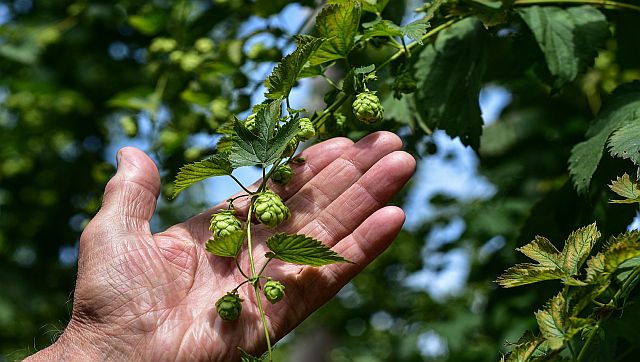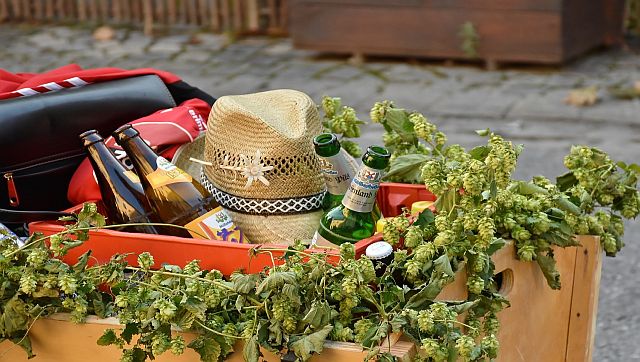Climate change may soon make the world’s most popular alcoholic beverage, beer, much more bitter. Beer, the world’s third most popular beverage after tea and water, is composed of four primary ingredients: water, yeast, barley malt, and hops. Climate change has long been a threat to grain production, but a recent study finds that it is already affecting the production of hops. According to a study published Tuesday in Nature Communications, climate change threatens the cultivation in Europe of aromatic hops which gives beer its bitterness. European varieties of hops are prized and used by brewers around the world, but rising temperatures and less rain are reducing yields and the concentration of the compounds that provide beer it’s refreshing tartness. Alpha acids from hops are decreasing The researchers observed this trend by analysing data from five sites in the Czech Republic, Germany, and Slovakia, which along with Poland are the primary hops growers in Europe, study co-author Miroslav Trnka said. They wanted to find out how the ongoing climate crisis affects hops production. The researchers examined the production of hops flowers between 1970 and 2020. They also looked at another important factor: the amount of lupulin found in hops blossoms. This resin contains alpha acids, which give bitterness and determine hop quality. The numbers for each harvest were then cross-referenced with other meteorological characteristics, such as temperature, rainfall, and hours of sunlight during important periods of fruit bearing and harvesting. The results show that the yields fell between 9.5 and 19.4 per cent at four sites and were stable at a fifth when data from 1995-2018 was compared with 1971-1994. Meanwhile, the concentration of the bitter compounds, alpha acids, decreased. [caption id=“attachment_13232902” align=“alignnone” width=“640”] Brewers can also try to modify their methods to adapt to the reduced bitterness in hops. Pixabay[/caption] Extrapolating from the data, the researchers predicted a drop in yield of between four and 18 per cent, compared with 1989-2019 while the concentration of alpha acids could drop between 20 and 31 per cent as temperatures rise and rainfall is impacted. With droughts expected to increase in central and southern Europe “it will be necessary to expand the area of aroma hops by 20 per cent compared to the current production area to compensate for a future decline in” potency and yields, said the study. Serious consequences Martin Mozny of the Global Change Research Institute of the Czech Academy of Sciences and the study’s lead author, says this acceleration has serious consequences. “As temperatures increased, the onset of the phenological phases occurred earlier. The problem lies in the shift of the generative phase of hops to a period of longer days. All of this has a negative effect on the alpha quantity and aroma content,” he said, as reported by EL PAÍS. The plant requires a lot of light during the weeks when hops grow to their typical six-metre height. When the plant stops growing and is ready to bear fruit, however, excessive heat might harm the blossoms. The advancement of hops phenology has had a significant influence; depending on the area, productivity has fallen by 0.13 to 0.27 tonnes per hectare. [caption id=“attachment_13232912” align=“alignnone” width=“640”]
Brewers can also try to modify their methods to adapt to the reduced bitterness in hops. Pixabay[/caption] Extrapolating from the data, the researchers predicted a drop in yield of between four and 18 per cent, compared with 1989-2019 while the concentration of alpha acids could drop between 20 and 31 per cent as temperatures rise and rainfall is impacted. With droughts expected to increase in central and southern Europe “it will be necessary to expand the area of aroma hops by 20 per cent compared to the current production area to compensate for a future decline in” potency and yields, said the study. Serious consequences Martin Mozny of the Global Change Research Institute of the Czech Academy of Sciences and the study’s lead author, says this acceleration has serious consequences. “As temperatures increased, the onset of the phenological phases occurred earlier. The problem lies in the shift of the generative phase of hops to a period of longer days. All of this has a negative effect on the alpha quantity and aroma content,” he said, as reported by EL PAÍS. The plant requires a lot of light during the weeks when hops grow to their typical six-metre height. When the plant stops growing and is ready to bear fruit, however, excessive heat might harm the blossoms. The advancement of hops phenology has had a significant influence; depending on the area, productivity has fallen by 0.13 to 0.27 tonnes per hectare. [caption id=“attachment_13232912” align=“alignnone” width=“640”] The plant requires a lot of light during the weeks when hops grow to their typical six-metre height. When the plant stops growing and is ready to bear fruit, however, excessive heat might harm the blossoms. Image used for representational purpose/Pixabay[/caption] It called for “urgent adaptation measures to stabilise international market chains” such as moving crops to more suitable areas or irrigating. Hops farmers are trying to adapt, but Trnka said their options are limited as “hops needs a specific combination of climate and soil” and the introduction of genetically modified plants designed to better support warmer temperatures and drought is prohibited in Europe. Brewers can also try to modify their methods to adapt to the reduced bitterness in hops. Agricultural engineer Javier Fraile told EL PAÍS that it is difficult to separate the impact of climate change from other causes. “The issue is that the various types do not live forever. The ideal would be 15 years of production,” he says. Hops plants can survive for roughly 20 years and produce differently in their early and late years. He believes that this may have an impact on the study’s findings. With inputs from AFP
The plant requires a lot of light during the weeks when hops grow to their typical six-metre height. When the plant stops growing and is ready to bear fruit, however, excessive heat might harm the blossoms. Image used for representational purpose/Pixabay[/caption] It called for “urgent adaptation measures to stabilise international market chains” such as moving crops to more suitable areas or irrigating. Hops farmers are trying to adapt, but Trnka said their options are limited as “hops needs a specific combination of climate and soil” and the introduction of genetically modified plants designed to better support warmer temperatures and drought is prohibited in Europe. Brewers can also try to modify their methods to adapt to the reduced bitterness in hops. Agricultural engineer Javier Fraile told EL PAÍS that it is difficult to separate the impact of climate change from other causes. “The issue is that the various types do not live forever. The ideal would be 15 years of production,” he says. Hops plants can survive for roughly 20 years and produce differently in their early and late years. He believes that this may have an impact on the study’s findings. With inputs from AFP
Bitter Truth: How climate change is affecting your beer
FP Explainers
• October 14, 2023, 10:36:58 IST
According to a study published in Nature Communications, climate change threatens the cultivation of aromatic hops in Europe. It is this ingredient that that gives the beverage its bitterness
Advertisement
)